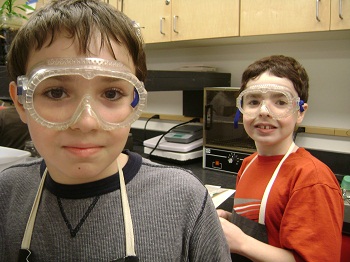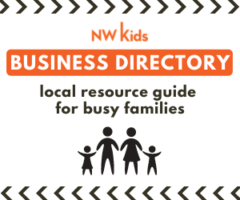
By Brooke Preston

This academic year, the Portland Jewish Academy (www.pjaproud.com) celebrates 50 years of educating students. From the time it opened its doors as Hillel Academy in the fall of 1961, the school has connected students with history and tradition, while earning a well-deserved reputation as a trailblazer.
Hillel Academy began in the basement of the Shaarie Torah synagogue with just 26 students in grades 3-6; that year, in fact, alumna Linda Nemer Singer was the sole charter 3rd grade student (she later went on to become PJA’s admission director and is now a Community Concierge for the Mittleman Jewish Community Center). Recess was held in the synagogue’s parking lot. From humble beginnings, the school steadily grew and evolved over the next few decades. In 1986, Hillel Academy and the Jewish Education Association—which had operated an afternoon Hebrew school program two days per week in Portland since 1934—merged to form the Portland Jewish Academy.
Today, PJA welcomes over 325 students to its infant toddler programs, preschool, lower school and middle school (through eighth grade). Current students come from throughout the Portland area, across all branches of Judaism and other faiths alike. The Schnitzer Family Campus houses the Mittleman Jewish Community Center (MJCC) and the school, which is equipped with three age-appropriate playgrounds; students also have access to the MJCC’s gymnasium, pools, and indoor Soccerplex.
Like other local schools, studies cover the core subjects like Math, Science and English. However, the PJA experience also includes ample time dedicated to physical education and the arts. Doing and inquiring are integral parts of daily student life through plenty of hands-on and/or off-site events. At every level of learning, PJA students are constantly and actively engaged in real-world problem solving that helps them participate in and understand the world in which they live.
PJA’s Principal Merrill Hendin explained, “Our students study important world issues such as hunger and homelessness, and use them to learn about the Jewish principle of tikkun olam (repair of the world). We then apply those lessons through class service projects which seek to effect change on a local level. For instance, classes donate food and collect warm clothing, while learning about how Jewish law talks about assisting others less fortunate.”
The school honors its history and founding mission through a continuing commitment to six foundational Jewish middot (values): Limmud (study), Kavod (respect) Akharayut (responsibility), Kehillah (community), Hoda’ah (appreciation), and Zehut (Jewish identity).
Students are also connected with their spiritual and cultural heritage by taking Hebrew lessons and Jewish Studies, including history, Torah and prayers, beginning in the Preschool. Jewish traditions and holidays gain a new level of significance for many young PJA pupils, through the tasting of traditional foods and performance of songs, dances and customary rituals.
 Annette Demsey, parent of a current PJA 8th-grader and a 10th grade PJA graduate, remarked, “Although it is a thoroughly modern place, PJA is rooted in the traditional Jewish values surrounding education, respect and…the importance of doing what you can to make the world a better place. The kids are encouraged to think for themselves, to dig deep into the topic at hand, and to keep asking questions even when the answers don’t come easily. I can’t imagine a better template for preparing our kids for the future.”
Annette Demsey, parent of a current PJA 8th-grader and a 10th grade PJA graduate, remarked, “Although it is a thoroughly modern place, PJA is rooted in the traditional Jewish values surrounding education, respect and…the importance of doing what you can to make the world a better place. The kids are encouraged to think for themselves, to dig deep into the topic at hand, and to keep asking questions even when the answers don’t come easily. I can’t imagine a better template for preparing our kids for the future.”
While the school’s rich history and foundational values haven’t changed much in 50 years, teaching methods have. From blogging about the annual 8th grade trip to Israel to using web video calling service Skype to converse with Israelis in Hebrew, PJA students use technology to document experiences, sharpen skills, and use new applications to live out age-old Jewish principles.
Hendin said, “It is our hope that all that we do at PJA helps prepare our students to be well-equipped and thoughtful 21st century citizens. We do this by moving toward further integration of technology throughout our curriculum, working to train our teachers in the use of technology as a tool, and providing our students with ample resources and training on appropriate use of the devices they have so readily available to them.”
She continued, “We are very proud of the mensches (good people!) in our classrooms, and hope to instill in them a responsibility to be a link in the chain of many generations of leaders who work to make the world a better place.”


